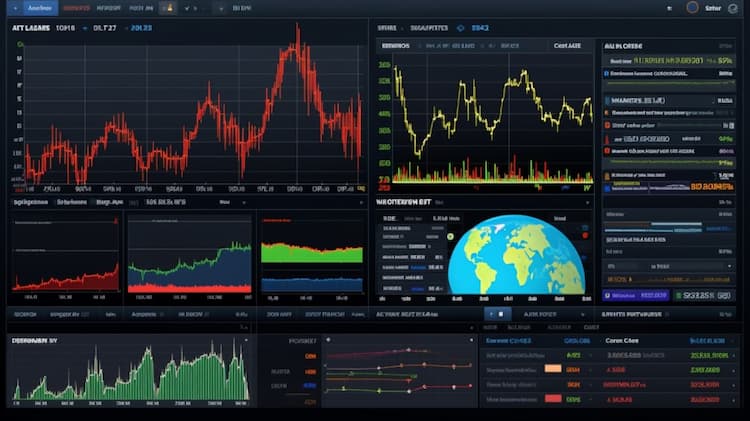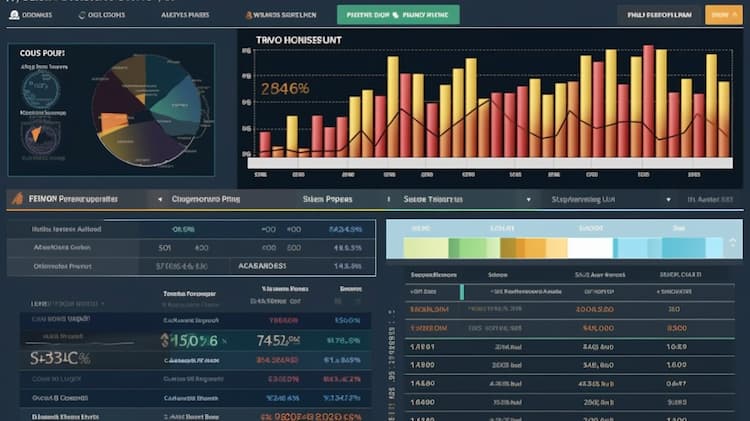
XBI VS VHT
The investment world is replete with countless opportunities. From stocks to bonds, from mutual funds to ETFs, the options are vast. However, the increasing trend towards specific sector investments brings us to a riveting debate: XBI VS VHT. Both Exchange-Traded Funds (ETFs) are celebrated in the market, but how do they fare against each other? This article takes a deep dive into their nuances to guide investors on making informed decisions.
XBI VS VHT: Sectors and Top Holdings
XBI (SPDR S&P Biotech ETF) and VHT (Vanguard Health Care ETF) represent two significant sectors: Biotechnology and Health Care, respectively.
The XBI predominantly focuses on the biotech sector. Its portfolio encompasses companies involved in the research, development, and commercialization of novel drugs and medical technologies. Think of firms at the cusp of significant medical breakthroughs, and that's what XBI brings to your portfolio. Notable holdings within XBI include companies like Moderna, Regeneron, and Vertex Pharmaceuticals.
On the other hand, VHT offers a broader spectrum, encapsulating the entire healthcare sector. It doesn't restrict its holdings to just biotech companies but also includes pharmaceuticals, healthcare providers, and equipment manufacturers. With VHT, you’re looking at giants like Johnson & Johnson, Pfizer, and UnitedHealth Group gracing its top holdings.
 XBI overlap XBI VS VHT
XBI overlap XBI VS VHT
XBI VS VHT: Capitalization Strategy
When it comes to capitalization strategy, XBI and VHT differ slightly. XBI uses an equal-weight strategy, meaning all its holdings, irrespective of their market size, are given nearly the same weight. This strategy ensures that no single company dominates the ETF and reduces the risk associated with the underperformance of a few large companies.
VHT, however, leans towards a market-cap-weighted strategy. This means that companies with a larger market capitalization (like the pharmaceutical titans) have a more significant influence on the ETF's performance. While this could amplify returns if the larger companies perform well, it also increases susceptibility to their fluctuations.
XBI VS VHT: Tracking and Exposure
Both XBI and VHT are designed to track specific indices. XBI tracks the S&P Biotechnology Select Industry Index, giving investors an accurate reflection of the biotech industry's performance in the U.S. Due to its equal weight approach, it provides a balanced exposure across various company sizes, from giants to budding enterprises.
VHT, meanwhile, shadows the MSCI US Investable Market Health Care 25/50 Index. Given its broader healthcare sector orientation, VHT provides more diversified exposure. This diversification could be an advantage for those looking for stability and less volatility in their investments.
Conclusion
Choosing between XBI and VHT boils down to your investment objectives and risk tolerance. If you're intrigued by the rapid growth and innovations in the biotech sector and can handle the associated volatility, XBI might be your cup of tea. On the contrary, if you're seeking a more stable, diversified exposure to the healthcare world at large, VHT could be a better fit.
Investing is never a one-size-fits-all proposition. It's essential to research, consult with financial advisors, and understand the underlying assets and strategies of any ETF or investment vehicle. However, whether you lean towards XBI or VHT, what’s clear is that both offer an intriguing gateway into the world of health and medicine from a financial perspective.
Sources
https://www.ssga.com/ XBI ETF issuer
https://www.ssga.com/us/en/intermediary/etfs/funds/spdr-sp-biotech-etf-xbi XBI ETF official page
VHT quote and analysis
Discover the top holdings, correlations, and overlaps of ETFs using our visualization tool.
Our app allows you to build and track your portfolio.
To learn more about the VHT Vanguard Health Care ETF, access our dedicated page now.





